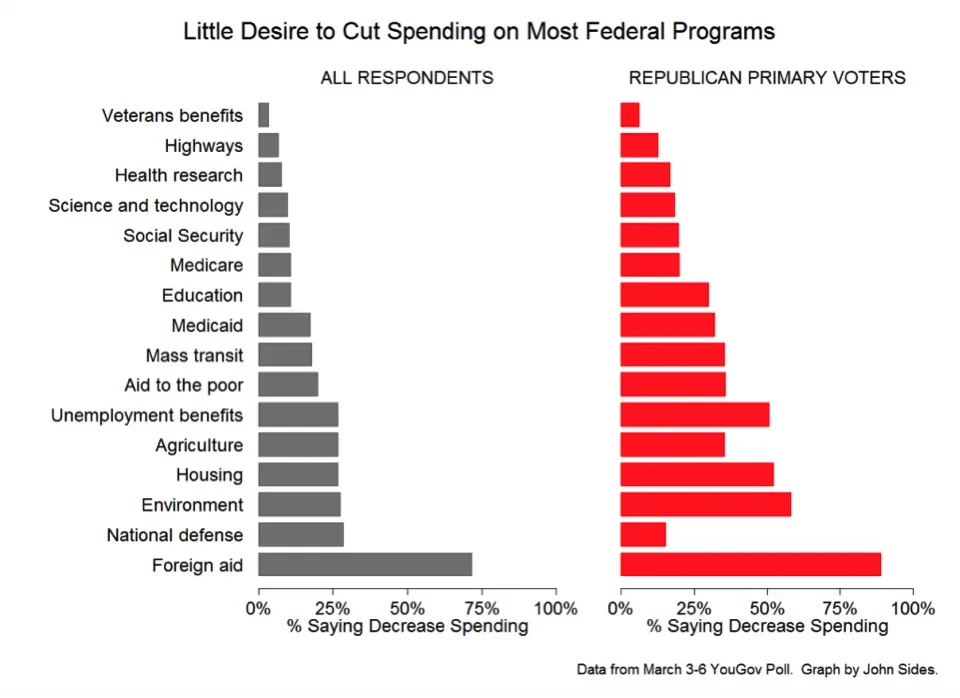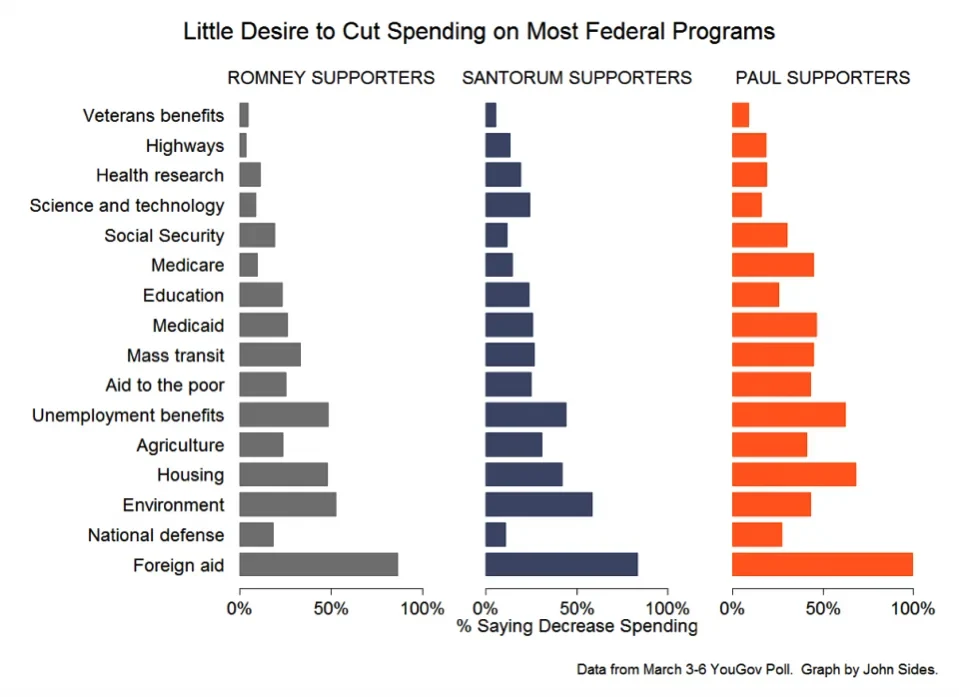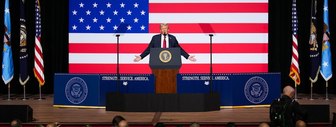Paul Ryan’s budget would cut a lot of government spending. It would cut entitlement spending. It would cut aid to the poor, transportation, education, veterans benefits, and scientific research. There have been plenty of responses to the budget, positive and negative. But only a couple that I've seen -- Jon Bernstein's and Stan Collender's-- anticipate this potential problem:
It might not prove that popular with Republican voters.
This is because many people who object to government in the abstract actually embrace it in fact and often embrace its most expensive programs. Is this surprising? No and no. But it bears repeating.
In a March 3-6 YouGov poll, respondents were asked whether they wanted to increase spending, decrease spending, or keep spending the same in 16 different policy areas. In only one case, foreign aid, did a majority (72%) of Americans want to cut spending. And some of the most costly programs -- like Social Security, Medicare, and Medicaid -- attracted some of the least opposition.
What about when we isolate the views of the Republican base, respondents who reported being likely to participate in a Republican primary or caucus? The results aren't much different. Consider the figure below, which compares responses among all respondents and Republican primary voters:

Only 17% of Republican primary voters wanted to cut spending on health research. Only 20% wanted to cut Social Security or Medicare. In fact, only 32% wanted to cut Medicaid and only 36% wanted to cut aid to the poor. Majorities of GOP primary voters were willing to cut only four things: unemployment benefits, spending on housing, spending on the environment, and foreign aid.
The same basic story emerges among supporters of different Republican presidential candidates. Consider spending preferences among supporters of Romney, Santorum, and Paul:

Even Paul supporters weren't particularly keen on cutting most government programs. Only 28% wanted to cut national defense. Only 30% of them wanted to cut Social Security. Only 44% wanted to cut aid to the poor.
To be sure, this poll did not include large samples of supporters for each candidate. For example, there were only 27 Ron Paul supporters among the likely GOP primary voters in this national sample. But the results don't really change among the larger group of Americans who have favorable opinions of Romney (39%), Santorum (35%), and Paul (40%). Among those who felt favorably toward Paul, only 27% wanted to cut national defense.
This reluctance to embrace lower government spending flies in the face of some narratives about the Republican primary. Consider Frank Rich's characterization of the GOP as a "Molotov Party." Writing in December 2011, Rich argued that the party could be divided into the 25% who supported Romney and the 75% who did not. And of that 75% he wrote:
At the annual Conservative Political Action Conference in Washington, D.C., Romney won its influential presidential straw poll three years in a row until Ron Paul ended that streak in 2010, then beat him again this year. Both times Paul’s victories were dismissed by the GOP Establishment (CPAC’s organizers included) as aberrations—fleeting coups staged by hustling young cadres of fringe maniacs. But Paul’s triumphs were no aberration; he was a bellwether of the right’s new revolution. His zeal to dismantle Washington is now mainstream for the firebrand 75 percent. These days a Republican candidate who wants to send multiple departments of the federal government to the guillotine only risks a backlash when he can’t remember the condemned agencies’ names.
But as it turns out, these "firebrands" and "fringe maniacs" aren't exactly rushing government to the guillotine. Maybe to the barber for a trim.
Even though Ryan's budget may be dead on arrival, don't expect Republican voters to mourn its passing.









